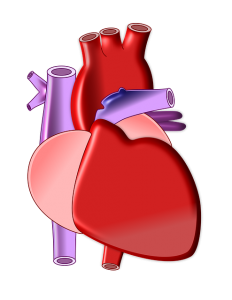Cardiovascular disease is the number one cause of death around the world. According to the World Health Organization, cardiovascular disease accounts for about 31 percent of all deaths — a total of around 17.7 million people per year. In the United States, the prevalence of cardiovascular disease is similar. According to the US Centers for Disease Control and Prevention, about 1 in 4 deaths are caused by heart disease — a total of around 610,000 people per year. Moreover, about 47 percent of Americans have one of the top three risk factors for cardiovascular disease: high blood pressure, high cholesterol, and/or a history of smoking.
As a cardiologist, you would have the opportunity to dedicate your career to supporting cardiovascular health and combating cardiovascular disease. The United States can be a great place to get the training you need through residency and/or fellowship programs. Read on to learn what foreign medical graduates need to do to launch a career in cardiology.
Completing a US Medical Residency Program in Internal Medicine
After earning your medical degree, the first step toward a cardiology career is a medical residency program in internal medicine. According to the National Residency Matching Program (NRMP), internal medicine is the most common residency specialty for foreign medical graduates, and the proportion of FMGs who choose internal medicine has been on the rise in recent years, jumping 6.4 percent from 2011 to 2015.
An internal medicine residency program can provide the preparation you need for a wide range of medical careers, including cardiology. In a three-year internal medicine residency program in the United States, you will get broad training in the diagnosis and treatment of the diseases and disorders that affect all organ systems. This training will include a mix of clinical practice and classroom-based seminar. You may also have the opportunity to conduct laboratory or clinical research in an area of interest, like cardiology. At the end of your internal medicine residency program, you are eligible to take the certification exam offered by the American Board of Internal Medicine (ABIM).
Completing a Fellowship in Cardiology
After earning certification from the ABIM, you can continue toward a career in cardiology by starting a three-year cardiology fellowship. During a fellowship in cardiology, you will have the chance to study a wide range of cardiac conditions, procedures, and prevention strategies. In most programs, you will also have the chance to apply your knowledge and skills in multiple settings, including inpatient and outpatient settings. Research is also an integral aspect of many cardiology fellowship programs. Just as in your internal medicine residency program, you may have the chance to choose between research in laboratory and clinical settings, depending on your specific interests.
Subspecialty Cardiology Fellowships
If you are passionate about a particular topic within the field of cardiology, you may consider completing a one- to two-year cardiology subspecialty fellowship after you have finished your three-year general cardiology fellowship. In a subspecialty fellowship, you have the opportunity to gain focused clinical and/or research experience in a particular cardiology subfield. The ACGME-accredited subspecialty options for trained cardiologists include:
- Interventional Cardiology Fellowship. In this subspecialty fellowship, your focus would be on treating coronary artery disease, the most common cardiovascular condition in the United States. Topics of study can include diagnostic procedures, percutaneous coronary interventions, and management strategies for patients with coronary artery disease. Interventional cardiology fellowships last one or two years.
- Electrophysiology (Heart Rhythm) Fellowship. In this subspecialty fellowship, your training would focus on the diagnosis and management of disorders characterized by irregular cardiac rhythms. For this, you would gain expertise in the implantation of pacemakers and other medical devices, lead extraction, and epicardial mapping, among other procedures. Electrophysiology fellowships last one or two years.
- Advanced Heart Failure Fellowship. This subspecialty fellowship would provide training in the management strategies for complex heart failure, such as transplant and implantation of artificial heart devices. You would also learn about pre- and post-operative care for patients who undergo these procedures. Advanced heart failure fellowships last for one year.
Although Interventional Cardiology, Electrophysiology, and Advanced Heart Failure are the only ACGME-accredited subspecialty options in cardiology, there are also unaccredited subspecialty fellowship options in other cardiology subfields, such as Advanced Imaging and Metabolic Cardiology. Even though these programs are unaccredited, they may still provide valuable education that can support your career success.
Pre-Residency Preparation Options for Aspiring Cardiologists
As an aspiring cardiologist with a degree from a foreign medical school, there are many things you can do to get ready for the residency application process that will launch your career in cardiology. One great way to gain clinical experience in a US medical setting is by completing a graduate externship experience. You can choose a graduate externship in general cardiology or a subspecialty area like interventional cardiology or metabolic cardiology. When writing your application for an internal medicine residency in the United States, you can draw on this experience to explain your passion for the field of cardiology and demonstrate your commitment to career success. In some cases, graduate externships can also help you make connections with potential reference writers at US institutions, which you may need to get matched in certain residency programs.
FMG Portal offers graduate externships in a wide range of medical specialty areas, including cardiology, interventional cardiology, metabolic cardiology, and internal medicine, among others. Contact us today for more information!
